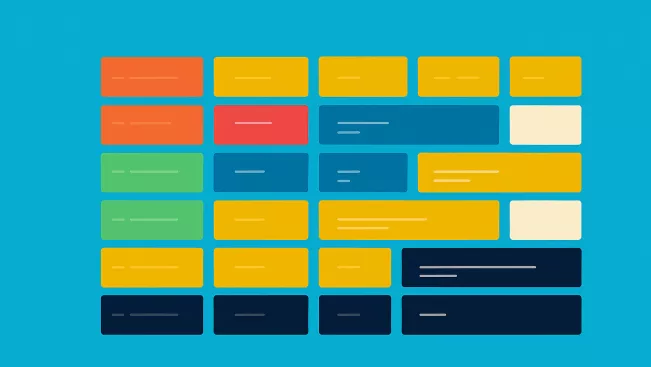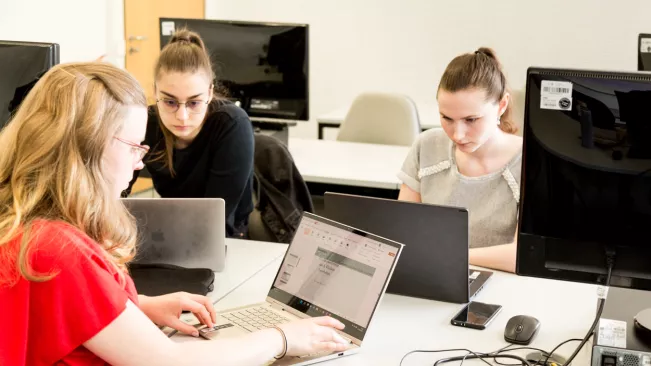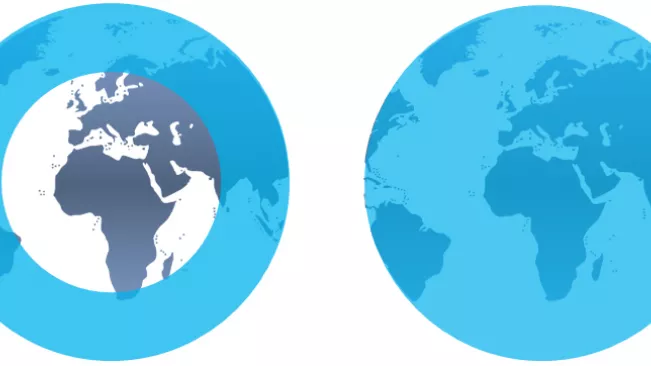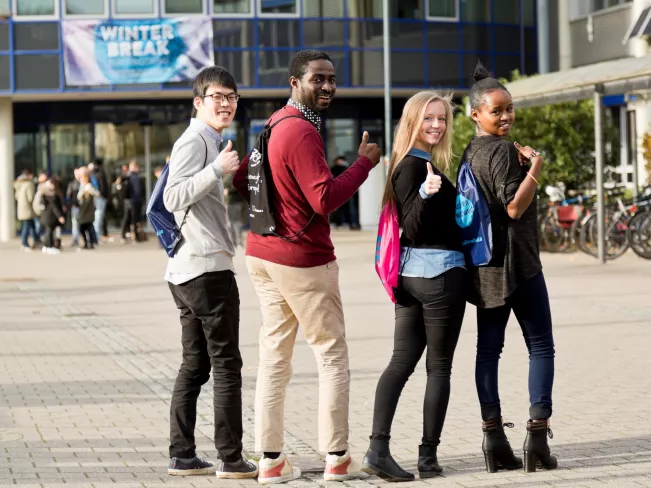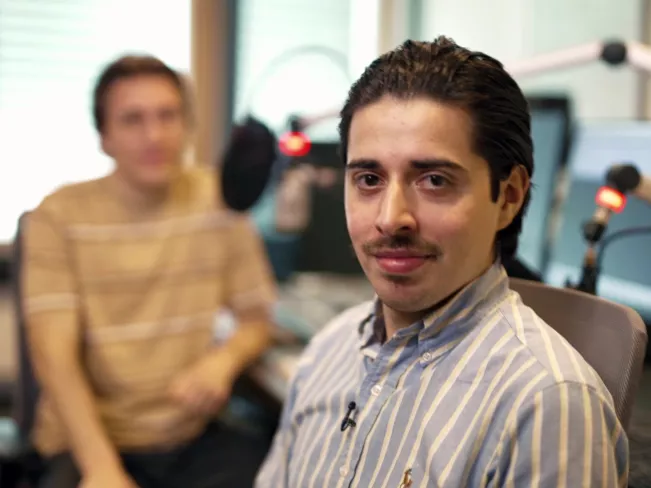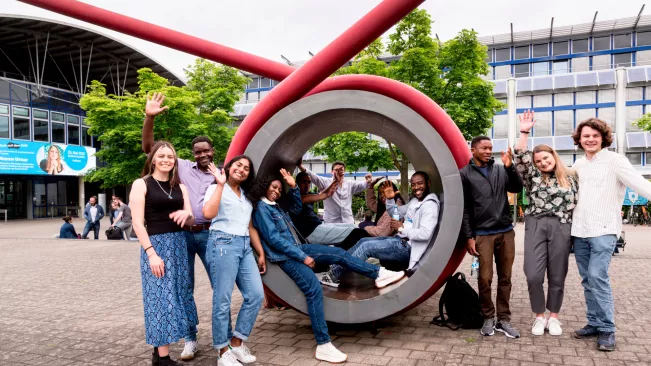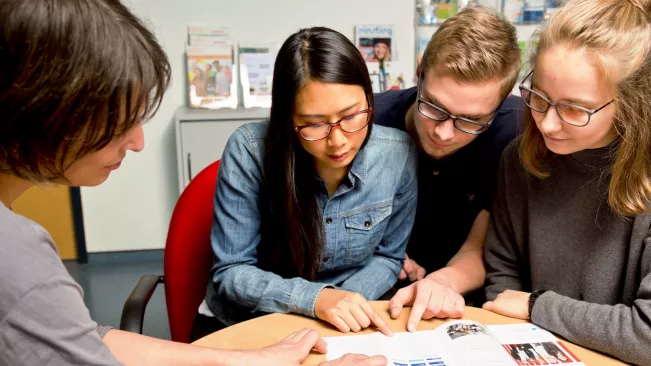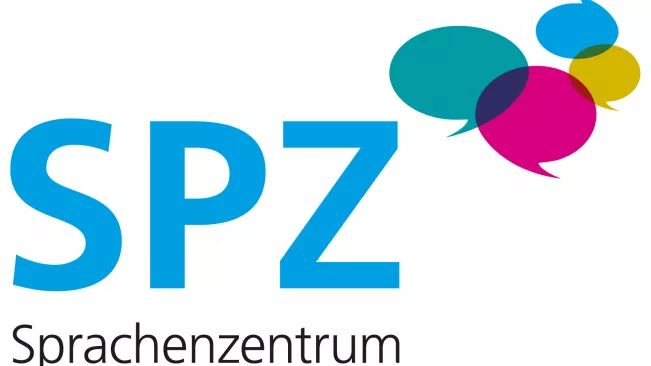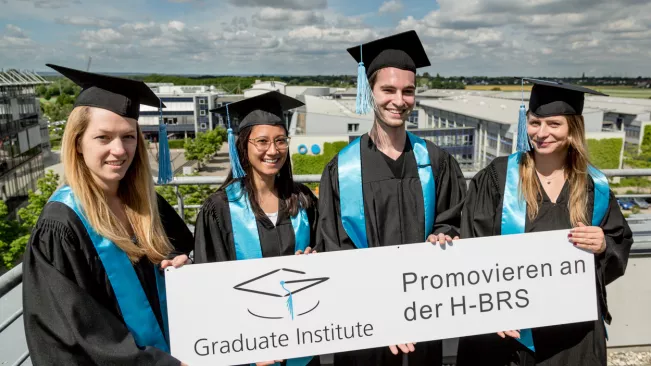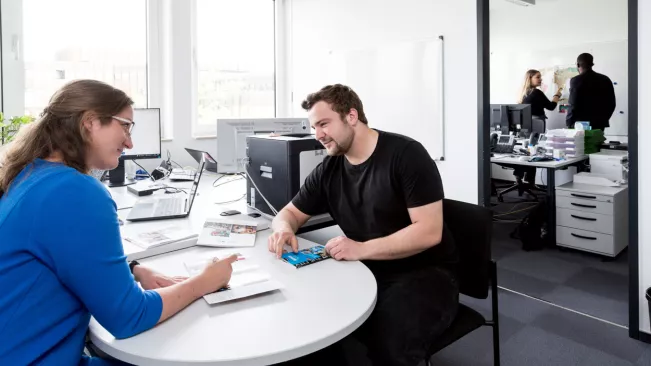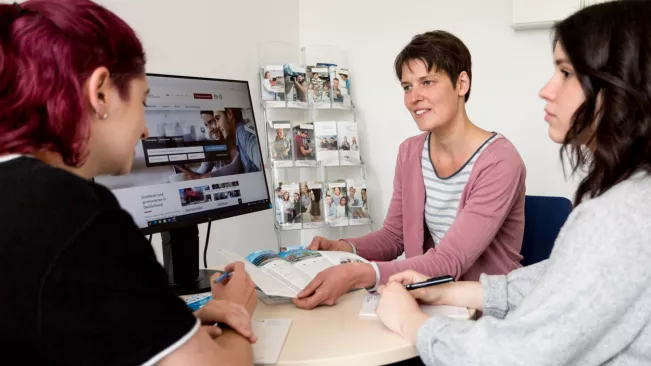Department of Engineering and Communication
Electrical Engineering (BEng)

Study Facts
Degree
Bachelor's degree
Standard period of study
Seven semesters / 210 ECTS
Lecture language
German
Campus
Sankt Augustin
Start of study
Winter term
Type of study
Full-time
Admission requirements
General or subject-related higher education entrance qualification (Abitur, Fachabitur) or educational qualifications recognised as equivalent by the relevant authorities. Further information can be found on the Student Services website:: Admission requirements.
Admission type and enrolment deadline
If you fulfil all the admission requirements, you can enrol within the deadline. You can enrol from 15 June to 1 October for the start of the winter semester.
Costs
Only the current semester fee is payable for this degree programme: Semester fees and Administrative fees.
Download flyer
Course content and qualification objectives
Course structure
In the first two semesters, students acquire the fundamentals of mathematics and physics. They gain a basic knowledge of electrical engineering, measurement technology, computer science and materials science. They also improve their English language skills. In the following profile year (3rd + 4th semester), students focus on a specialisation. They can choose between automation technology and electronic systems. In parallel, there are additional modules and two practice-oriented projects. The fifth semester is a practical semester, which can be completed in Germany or abroad.
Prospects and job opportunities
Automation shapes transport, vehicle construction and almost all industries. Graduates with a B.Eng. in Electrical Engineering are in high demand because they can develop electronic systems, design control systems, program embedded software and implement sustainable solutions. Building on this, H-BRS offers three master's programmes: Electrical Engineering (MEng), Mechanical Engineering (MEng) and Sustainable Engineering (MEng).
Practical relevance and teaching formats
An essential part of an engineering degree at Hochschule Bonn-Rhein-Sieg is applying the knowledge you have learned in a practical and solution-oriented way:
- in laboratory practicals, where, for example, physical principles are tested and materials are examined.
- during the three project weeks per semester, which offer the opportunity to work on projects in small teams.
- during an internship semester in Germany or abroad, during which students gain their first work experience.
- in the final thesis, which can be written in cooperation with companies or research institutes.
Study location and learning environment
The town of Sankt Augustin, where the university campus is located, borders the city of Bonn to the north-east. The state university is easily accessible by public transport from Cologne, Bonn, Düsseldorf and Koblenz. The campus is modern, and the classrooms, laboratories, workshops and library are excellently equipped. Small study groups facilitate good contact with other students and lecturers. The university has a strong network and cooperates with around 90 foreign universities in more than 40 countries.
Familiarisation offers and news for prospective students
Good reasons for studying at H-BRS
Accreditation
Contact
Course guidance service Bachelor Electrical Engineering
Campus
Sankt Augustin
Room
B 207
Opening hours
We look forward to hearing from you.
Contact to the Student Services
Opening hours
Telephone consultation hours: Monday - Friday: 10:00 - 12:00
Personal consultations by appointment only
Contact Student Advice Centre
Campus
Sankt Augustin
Room
E029, E031, E034, E035, E041
Opening hours
Telephone hours without appointment
Telephone hours: Monday, Wednesday and Thursday: 10:00-12:00
and Monday: 13:00-15:00
Cancellation of telephone hours: Monday, 16.02.2026
International Office - Sankt Augustin
Campus
Sankt Augustin
Room
E 056 - E 061
Opening hours
Please contact us by phone or email for an appointment
